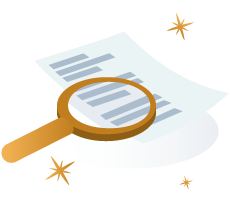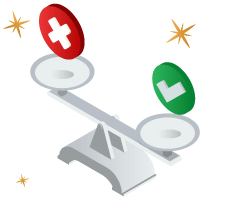The Complete How To Rent Guide 2022

Renting has been growing in the UK for the last two decades with more and more people deciding to rent their homes rather than own them. In this complete how to rent guide, we’ve laid out everything you need to know whether you’re a first time renter or just looking for a new place.
What Is the How To Rent Guide?

Renting is under quite strict regulations. The How To Rent guide is an official document from the government that landlords must provide their tenants in either a physical copy or electronically. The How To Rent guide details all the rules and regulations that both landlords and tenants must follow to ensure they are renting legally and that both sides are protected.
The How To Rent guide is updated regularly and is published on the government’s website. The latest version is from December 2020, and gives a full checklist for tenants to double check that they are receiving the right information and conditions from their landlord before they start renting.
Don’t know where to start? Getting started looking for a place can be confusing, even if you’ve done it many times before! That’s why it’s recommended to find a place through a rental website where you can filter the results so you can find exactly what you’re looking for!
Check our guide to the Best Rental Websites!
What Do I Need To Know Before Renting?
Especially if you are renting for the first time, it is important to consider exactly what you're looking for before you begin. You need to consider your budget, location, the size of the deposit, and even whether the property will allow pets. You will also need to think about how you want to rent, whether from a letting agency or directly from a landlord.
Before You Rent

If you decide that you want to move from where you are currently, you’ll want to make a list of what you are looking for when it comes to a lease agreement. Since you will be signing a contract, you will need think about the following:
- How much is the deposit?
The deposit is the amount you pay when you start renting a property. It is refunded to you at the end of your tenancy if the property has been kept in a good condition. If your rent is under £50,000 a year, your landlord can only ask for up to 5 weeks rent. - How long do you want to stay?
Typically rent contracts will be for 6 to 12 months, however your landlord must allow you to stay for 6 months. At the end of your lease, you can negotiate for a longer period. - How much can you afford?
You should consider your income when looking for a rental property as you want to make sure you have enough each month to pay and some left over. On average, your rent should be around 35% of your monthly salary. - Can you get Housing Benefit or Universal Credit?
If you are eligible, you might be able to receive help with your monthly rent. This could include all or just part of your rent payments. - Do you have the Right to Rent?
Before you move in, you will need to prove to your landlord that you have the right to rent. This can include having the right documents and legal status to be able to start renting with a landlord. - Do you need a Rent Guarantor?
Your landlord might ask you for a rent guarantor who will guarantee your rent payments if you fall behind.
Renting from a Landlord or Letting Agency
An important thing to decide is whether you want to rent directly from a landlord or you would prefer to go through a letting agency for your property. There are advantages and disadvantages for doing either so here is a list of the pros and cons:
| Pros | Cons |
|---|---|
| Pay less to move in | Landlord could live abroad |
| Less chance of needing credit check | Repairs might be late |
| Don’t need many references | Difficult to get hold of |
| Bills can be included | Might not know the law |
| Chance of a personal relationship | You have to do most of the paperwork |
| Pros | Cons |
|---|---|
| Better regulated | Need to give more references |
| Easier to contact | Can be more expensive |
| Do most of the paperwork | Poor service |
| Know the law | Your information can be lost or wrong |
| Repairs can be quicker | Credit checks |
Ultimately it will be up to you whether you want to find a landlord to rent from directly or use a letting agent. In general however, renting directly from landlords is becoming more difficult as more and more are using letting agencies meaning it’s getting harder to find a landlord prepared to lease to you without a middleman.
Permitted Fees Letting agencies and landlords are not permitted to charge any fees for viewing or holding a property for you. You may only be charged for your rent, default fee, or an early termination fee. You might also be charged for replacing a lost key.

How To Rent Checklist
Looking for a property to rent is probably the hardest part since it requires many hours of searching and contacting different landlords and letting agents to try and find the perfect place. Fortunately, there are lots of places where you can go and search including rental websites and real estate agencies.
Tenancy Agreement Even if you’re renting a council house or from a private landlord, you will usually be given a tenancy agreement. This is a contract between you and your landlord that defines the rules and expectations from both sides. Tenancy agreements can vary and there’s no unified standard.
Check out our Tenancy Agreement guide to learn more!
When renting, you will need to check to see if the place you are going to live in meets the minimum standards for both you and for general habitation:
- Bills
Check who is responsible for bills. In your rent agreement, it will state whether your landlord will cover your electricity, gas, and water or they will be in your name. Also double check who will be liable for paying Council Tax. - Smoking
If you are a smoker, you should try and look for a place that allows for smoking. Often this is specified on the contract and the advert and can include penalties from the landlord if it is broken. - Pets
If you own a pet, you need to make sure that they are allowed. - Fixtures and Fittings
Before you sign a lease, look around at the property to see if you like the fixtures and fittings for lights, rails, and other appliances. You will not usually be allowed to change these after you move in. - Safety
Safety is paramount when moving into a new property so you will need to make sure your home meets basic safety requirements. This includes smoke alarms, carbon monoxide detectors, and any obvious signs for damp or mould that can pose a risk to your health.
When the time comes for you to move in, your landlord must provide you with following documents:
- Copy of the Energy Performance Certificate (EPC)
- Copy of the Gas Safety Certificate (GSC)
- Copy of the How To Rent guide
- Deposit paperwork
Living in Your Rented Home
After you’ve moved into your new rented home, you will be responsible for your tenancy and you will need to respect both the property and your neighbours to make sure you don’t get into trouble or any legal difficulties.
What Makes the Perfect Tenant?

To ensure your tenancy goes smoothly, here are some important obligations a tenant has when they move into a rented property.
- Pay you rent
You will need to pay your rent regularly and on time. If you leave a payment for more than 14 days, you could be obliged to pay a default fee. - Pay your bills
Any bills that are not specified in your rental agreement will be your responsibility to pay. You’ll need to keep up with your energy and water bills to make sure you don’t get into debt. - Take care of the property
you should look after the property while you are living there. If you need any repairs done, contact your landlord so they can make the necessary arrangements to get it done for you. - Do not sublet
As a general rule, subletting renting the apartment to someone else, is inadvisable without the landlord’s permission. You should contact the landlord before doing so. - Report any damages
If the property has been damaged, you should report it to your landlord immediately so you don’t risk losing your deposit when you move out.
What Do Landlords Have To Provide?
Your landlord also has obligations to you as a tenant and failure to comply with these can result in having legal action brought against them. Landlords make themselves available to you so you can contact them if you need them.
- Repairs
landlords are responsible for carrying out most repairs on a property. Landlords are permitted time to put things right, but if it drags on for a long time, you can consider a formal complaint. - Protecting the deposit
Landlords are responsible for protecting the deposit so it is available to you when you move out. This also includes having the deposit covered by a deposit protection scheme.
What Do I Need To Do at the End of Tenancy?

When your tenancy comes to the end of its fixed period, you can decide whether you want to leave the property or continue to stay. Often, your contract will revert to a ‘rolling periodic contract’ where you can carry on living and paying the rent indefinitely.
If you want to leave the property, you should give notice to your landlord before moving. This will usually be detailed in your tenancy agreement but is typically a period of 30 days. If your landlord wants you to leave, they must give you at least 30 days notice.
Evictions Your landlord can only evict you under certain circumstances and in full accordance with the law.
Moving Out a Rented Place

When you move out of a rented place, you should follow a final moving house checklist to make sure everything is in order. If you have agreed an inventory at the start of your tenancy, you should go through that and double check everything is as you found it.
Moving Out Checklist
- Clearing Up
Remember to clear up the flat or house and remove your possession, disposing of any rubbish. Get moving boxes to help you organise your move! - Return the keys
Make sure you return any keys and copies to the landlord. - Take Meter Readings
Go round to your electricity, gas, and water meters and make a note of all the readings. If you have a prepayment meter, make sure there isn’t any debt on the meter before leaving. - Close account
Close all your utility accounts or let them know you’re moving.






